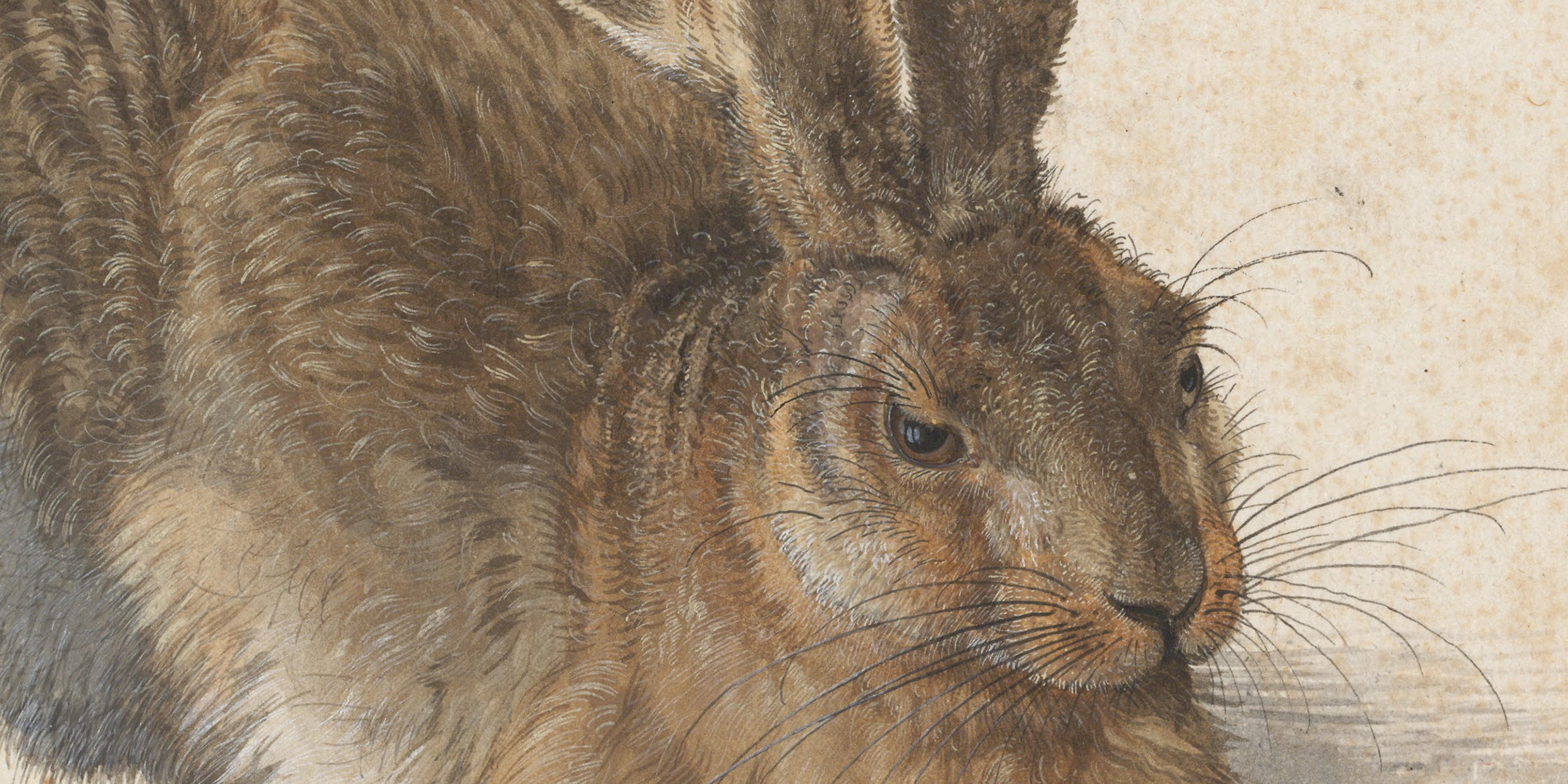Originally published 27 May 2007
In Letters to a Young Poet, the poet Rainer Maria Rilke writes: “We should try to love the questions themselves, like locked rooms and like books that are written in a very foreign tongue.” It is a thought that will appeal to anyone of a scientific temperament. Answers are fine, yes, but without questions science comes to a screeching halt.
I will return to Rilke, and to questions and answers, but first let me say a few words about the German artist Albrecht Dürer (1471 – 1528).
Dürer’s life just about spans the interval between the invention of movable type by Gutenberg and Copernicus’ De Revolutionibus. In other words, he was there as the Age of Faith ended and the Age of Reason began. Dürer was the last of the medieval artists, and the first modern. His work is about evenly divided between religious and secular themes. If you wanted to find a single work of art that most tellingly anticipates the Scientific Revolution, it might be Dürer’s drawing of a hare. Here is art in the service of exact, dispassionate observation.
But to catch Dürer on his cusp of history, let’s look at two of his most famous etchings: Saint Jerome in His Study, and Melencolia I.

Jerome looks back to the Age of Faith. The saint is at his desk, serenely working on his translation of the Scriptures. In the hour glass on the wall, time is running out, but the crucifix on the desk — which intervenes exactly along the line of sight between Saint Jerome and the skull on the window sill — promises eternal life. The books, the pillows, the slippers, the dog and the lion, are all at orthogonal rest. The room is bathed in the pure light of faith. Everything about the scene suggests the security of answers. The scholar Erwin Panofsky suggested that this etching represents “life in the service to God.”

Melencolia I, according to Panofsky, represents “life in competition with God.” I would rather say that it represents life without God. Here is the questing mind that relies upon its own curiosity and genius for truth about the world. Arrayed about the angel are all of the scattered tools of science, mathematics and technology. Again, time is running out in the hour glass on the wall, but the little putto is fast asleep (haloed by a measuring scale), the angel’s face is in shadow, and nothing — not the tools, not the full purse, not the fleeting light of rainbow or comet — promises mitigation of personal mortality. Questions. Those dreamy, frustrated eyes. The angel is neither happy nor unhappy. She knows she is on her own. She is the artist or the scientist aware that the Absolute she seeks is beyond her grasp. She will make the best of it.
Which brings me back to Rilke. I can never look at Dürer’s Melencolia I without thinking of Rilke’s Duino Elegies—the hopes, the dreams, the questions that kindle curiosity like locked rooms or books in foreign tongues. And the melancholy. “For Beauty’s nothing but beginning of Terror we’re still just able to bear, and why we adore it so is because it serenely disdains to destroy us,” the poet begins, and I can’t help but think I’m listening to Dürer’s angel.
“The most visible joy can only reveal itself to us when we’ve transformed it, within,” says Rilke, in the Seventh Elegy. And this, of course, is the constant work of the artist and scientist in the Age of Reason, the work of transformation, of making of the commonplace a satisfaction, of teasing up and out of the creation a meaning of sorts. In the Ninth Elegy the poet seems to be formulating a response to the angel of Melencolia I:
Praise the world to the Angel, not the untellable: you can’t impress him with the splendor you’ve felt; in the cosmos where he more feelingly feels you’re only a tyro. So show him some simple thing, remolded by age after age, till it lives in our hands and eyes as a part of ourselves. Tell him things. He’ll stand more astonished; as you did beside the roper in Rome or the potter in Egypt. Show him how happy a thing can be, how guileless and ours.
No answers, only questions. But then, says Rilke, perhaps we are here only to say “house,” “bridge,” “fountain,” “gate,” and by saying make of these things — as Dürer makes of the hare — something more than the things themselves could ever hope to be. Jerome’s supernatural repose is not ours. Let us trust the gifts that nature has given us — curiosity, art, science, reason — and if our personal lives are destined for oblivion, then know that we have made of ordinary things something grander and more enduring. We are the transformers. We are bestowers of praise.



